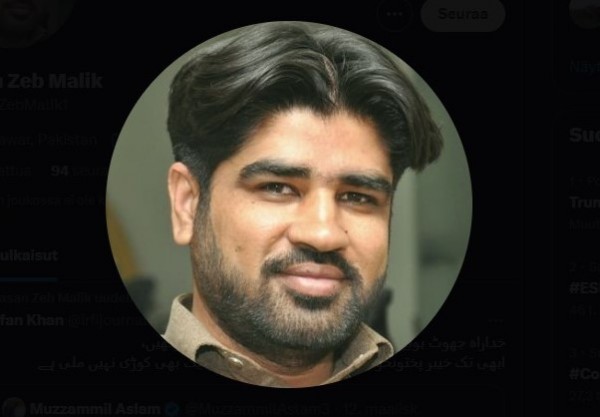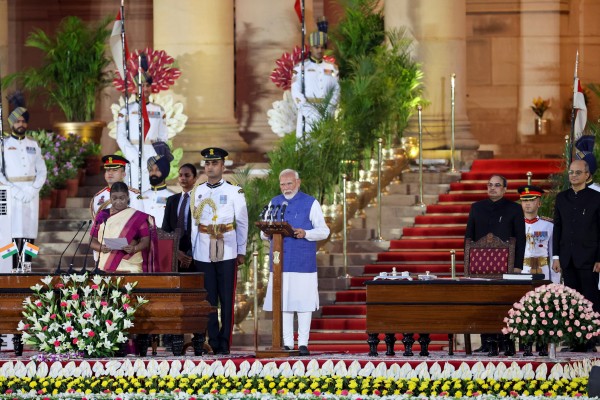The IPI global network calls on Indian authorities to immediately release Mohammed Zubair, the co-founder of fact-checking website AltNews, who was arrested over a tweet from 2018. We condemn the online censorship of Zubair and journalist Rana Ayyub, whose tweets in India were withheld on claimed violations of India’s cybercrime laws. Twitter and other social media platforms must conduct due diligence on government censorship demands and push back on overly broad demands to remove online content.
Zubair was arrested in New Delhi on June 27 on charges of hurting religious sentiments under sections 153 A and 295 A of the Indian Penal Code. A complaint alleged that Zubair insulted Hindus by commenting on the renaming of a hotel after the Hindu god Hanuman in 2018, according to reports. On June 30, Delhi police took Zubair to his residence in Bengaluru and seized his electronic devices, including his laptop and a hard-disk.
This is the sixth time that an FIR, a document prepared by the police when they receive a complaint about a cognizable offence, has been filed against Zubair in the past two years.
The arrest came days after Zubair received an email from Twitter saying that several of his tweets were the subject of a legal demand and that the company was therefore withholding the tweets to comply with its obligations under the Information Technology Act, 2000, a law in India dealing with electronic commerce and cybercrime. Twitter withheld a video Zubair posted of former BJP spokesperson Nupur Sharma making controversial comments about the Prophet Muhammad. The remarks angered the Muslim community and sparked protests.
Zubair was also previously booked by the Uttar Pradesh police for a series of tweets calling three Hindutva supremacists “hatemongers” on May 27, according to The Wire. He criticized and shared a video of a debate on the Times Now news channel about the controversial Gyanvapi Mosque, which has been the subject of dispute between the Hindu majority and the Muslim minority in India.
Tweets by journalist Ayyub also blocked
In a separate incident, Twitter blocked access to a tweet by journalist Ranya Ayyub regarding the same mosque that Zubair posted about. Like Zubair’s tweets, her tweet was withheld under the IT Act, and it is still accessible to Twitter users outside of India.
In her tweet, posted on April 9, Ayyub reacted to the decision by a lower court allowing a survey for the Gyanvapi Mosque in Varanasi, which is built on the ruins of a Hindu shrine, saying it will set “the stage for demolition of yet another mosque in India.” She referred to the Babri Masjid, a mosque that was demolished in 1992 amid an escalating struggle between the two religions.
Ayyub posted an email she received from Twitter, which says it removed the tweet in the Indian market to “comply with Twitter’s obligations under India’s local laws,” citing the IT Act, and summarizing its policy to comply with legal removal requests it receives from governments and law enforcement.
This is not the first time Ayyub, a columnist for the Washington Post, has been targeted for criticism of India’s ruling Hindu nationalist Bharatiya Janata Party (BJP).
In February, the Enforcement Directorate, a law enforcement agency dealing with economic crimes, froze Ayyub’s bank account for the second time in six months. She has also faced brutal abuse online, including reportedly receiving thousands of threats on social media, and was temporarily barred from leaving the country. Earlier this year, U.N. experts issued a statement calling an end to the “relentless misogynistic and sectarian attacks” against the journalist.
The Twitter bans are part of an escalating pattern of press freedom violations in India, a country where journalists are routinely harassed in an attempt to silence independent journalism. Prime Minister Narendra Modi’s government has passed a range of laws and policies that civil society and journalists say have led to the criminalization of journalism.
“We are concerned about the use of draconian laws and online harassment to silence journalists in India”, IPI Director of Advocacy Amy Brouillette said. “The Indian government must uphold its commitment to freedom of expression and opinion both online and offline. Twitter’s compliance with the Indian government’s demands to censor journalists is highly concerning. Platforms like Twitter should conduct push back against inappropriate and overly broad government demands to censor content.”
These recent incidents come as India banned the Twitter accounts of several Pakistani journalists, embassies, and some prominent personalities under India’s IT Act, including the Twitter handles of journalists Murtaza Ali Shah and CJ Werleman, according to reports and Pakistan’s Ministry of Foreign Affairs.



